58 start with D start with D


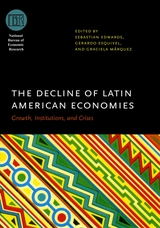
Latin America’s economic performance is mediocre at best, despite abundant natural resources and flourishing neighbors to the north. The perplexing question of how some of the wealthiest nations in the world in the nineteenth century are now the most crisis-prone has long puzzled economists and historians. The Decline of Latin American Economies examines the reality behind the struggling economies of Argentina, Chile, and Mexico.
A distinguished panel of experts argues here that slow growth, rampant protectionism, and rising inflation plagued Latin America for years, where corrupt institutions and political unrest undermined the financial outlook of already besieged economies. Tracing Latin America’s growth and decline through two centuries, this volume illustrates how a once-prosperous continent now lags behind. Of interest to scholars and policymakers alike, it offers new insight into the relationship between political systems and economic development.

In Deep Design, David Wann explores a new way of thinking about design, one that asks "What is our ultimate goal?" before the first step has even been taken. Designs that begin with such a question -- whether in products, buildings, technologies, or communities -- are sensitive to living systems, and can potentially accomplish their mission without the seemingly unavoidable side effects of pollution, erosion, congestion, and stress. Such "deep designs" meet the key criteria of renewability, recyclability, and nontoxicity. Often based on natural systems, they are easy to understand and implement, and provide more elegant approaches to getting the services and functions we need. Wann presents information gleaned from interviews with more than fifty innovative designers in a wide variety of fields, and describes numerous case studies that explain the concept and practice of deep design.
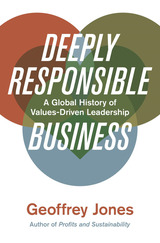
Corporate social responsibility has entered the mainstream, but what does it take to run a successful purpose-driven business? A Harvard Business School professor examines leaders who put values alongside profits to showcase the challenges and upside of deeply responsible business.
For decades, CEOs have been told that their only responsibility is to the bottom line. But consensus is that companies—and their leaders—must engage with their social and environmental contexts. The man behind one of Harvard Business School's most popular courses, Geoffrey Jones distinguishes deep responsibility, which can deliver radical social and ecological responses, from corporate social responsibility, which is often little more than window dressing.
Deeply Responsible Business offers an invaluable historical perspective, going back to the Quaker capitalism of George Cadbury and the worker solidarity of Edward Filene. Through a series of in-depth profiles of business leaders and their companies, it carries us from India to Japan and from the turmoil of the nineteenth century to the latest developments in impact investing and the B-corps. Jones profiles business leaders from around the world who combined profits with social purpose to confront inequality, inner-city blight, and ecological degradation, while navigating restrictive laws and authoritarian regimes.
He found that these leaders were motivated by bedrock values and sometimes—but not always—driven by faith. They chose to operate in socially productive fields, interacted with humility with stakeholders, and felt a duty to support their communities. While far from perfect—some combined visionary practices with vital flaws—each one showed that profit and purpose could be reconciled. Many of their businesses were highly successful—though financial success was not their only metric of achievement.
As companies seek to coopt ethically sensitized consumers, Jones gives us a new perspective to tackle tough questions. Inspired by these passionate and pragmatic business leaders, he envisions a future in which companies and entrepreneurs can play a key role in healing our communities and protecting the natural world.

One important outgrowth of this political insulation strategy--and the empirical centerpiece of Boylan's analysis--is the existence of new, highly independent central banks in countries throughout the developing world. This represents a striking transformation, for not only does central bank autonomy remove a key aspect of economic decision making from democratic control; in practice it has also kept many of the would-be expansionist governments that hold power today from overturning the neoliberal policies favored by authoritarian predecessors.
To illustrate these points, Defusing Democracy takes a fresh look at two transitional polities in Latin America--Chile and Mexico--where variation in the proximity of the democratic "threat" correspondingly yielded different levels of central bank autonomy.
Boylan concludes by extending her analysis to institutional contexts beyond Latin America and to insulation strategies other than central bank autonomy. Defusing Democracy will be of interest to anyone--political scientists, economists, and policymakers alike--concerned about the genesis and consolidation of democracy around the globe.
Delia M. Boylan is Assistant Professor, Harris Graduate School of Public Policy Studies, University of Chicago.
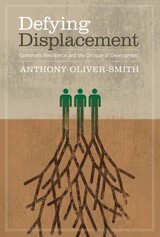
The uprooting and displacement of people has long been among the hardships associated with development and modernity. Indeed, the circulation of commodities, currency, and labor in modern society necessitates both social and spatial mobility. However, the displacement and resettlement of millions of people each year by large-scale infrastructural projects raises serious questions about the democratic character of the development process.
Although designed to spur economic growth, many of these projects leave local people struggling against serious impoverishment and gross violations of human rights. Working from a political-ecological perspective, Anthony Oliver-Smith offers the first book to document the fight against involuntary displacement and resettlement being waged by people and communities around the world.
Increasingly over the last twenty-five years, the voices of people at the grass roots are being heard. People from many societies and cultures are taking action against development-forced displacement and resettlement (DFDR) and articulating alternatives. Taking the promise of democracy seriously, they are fighting not only for their place in the world, but also for their place at the negotiating table, where decisions affecting their well-being are made.
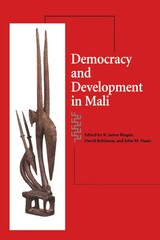
During the past twenty-five years, the scholarly research and applied development work of Michigan State University faculty and students in Mali represents the most significant combined, long-term, and continuing contribution of any group of university faculty in the United States or Europe to the study of Malian society, economy, and politics. The applied nature of much of this work has resulted in a significant number of working papers, reports, and conference presentations. This volume represents a coherent and connected set of essays from one American university with a widely known and highly respected role in African development. While the essays identify and review Mali's unique historical and contemporary path to democracy and development, they also contribute to the advancement of theoretical knowledge about African development.

The difference between developmental success and failure in this view has little to do with natural resource availability, climate, aid, or developed nations' policies. Rather, it is largely a function of whether incentives within a given society steer wealth-maximizing individuals toward producing new wealth or toward diverting it from others. The chapters, seminal essays written by Mancur Olson and his IRIS Center colleagues, provide theoretical and/or empirical underpinnings for the emerging consensus that differences in the way governments and societies are organized have enormous implications for the structure of incentives faced by politicians, bureaucrats, investors, and workers, which in turn determines the level of a nation's material well-being.
Overall this volume applies tools and concepts from the "New Institutional Economics" to some of the major issues in economic development. It will be of interest to scholars and students of various disciplines--including political science, law, and sociology as well as economics--interested in the determinants of economic development and global economic change. The book will also be of interest to many aid practitioners, particularly those working in anticorruption and public sector reform issues.
Stephen Knack is Senior Research Economist, Development Research Group, the World Bank.
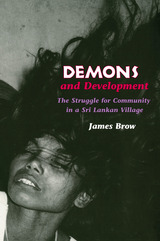
James Brow witnessed these possession trances and sorcery accusations as they occurred, enabling him to convey this richly textured story interweaving political factionalism and troubled spirits. Official projects of development have proceeded apace in Sri Lanka, but until now there have been few accounts of their tendency to tear apart the fabric of rural society. Demons and Development combines an engaging narrative of how development was experienced in one particular village with an original contribution to theories of hegemony, the social anthropology of South Asia, the ethnography of nationalism, and the sociology of development.



With the role of the landscape architect increasing as it is in importance, this first comprehensive survey of the art and practice of landscape architecture fills a great need.
Norman T. Newton has included over 400 illustrations in his book, which conveys a basic understanding of the aims and scope of landscape architecture and offers visual analyses of major historic works, each in the context of its own time.
The first third of the study is concerned with landscape architecture in the Western world, mainly Europe, from ancient times to the mid-nineteenth century. But the major part of the work is devoted to the development of landscape architecture in the century that has passed since it acquired the status of a profession and an independent discipline.
Concentrating primarily on the United States, Mr. Newton reviews his subject from its beginnings in colonial days to the work of Olmsted, Vaux, Cleveland, Weidenmann, Eliot, Platt, and the founders of the American Society of Landscape Architects. He discusses the Columbian Exposition of 1893, the "City Beautiful" movement and the growth of city planning, the Country Place Era, town planning in England and America, American national and state parks, parkways, urban open spaces, and recent variations in professional practice.
Mr. Newton concludes his book with a timely discussion of the vital role that landscape architecture plays in the conservation of natural resources and in protection of the environment.


Essays by the top scholars in the Weld span the breadth of the issue, from Uganda's growth out of poverty to development at the grass roots level. Developing Uganda replaces the myth and misinformation the last decade has witnessed with a realistic scrutiny by those who have studied it with care and caution.

Building on their previous research, Huber and Stephens show how high wages and generous welfare states are still possible in an age of globalization and trade competition.


Download PDF of corrected version of Chapter 2The intrinsic links between economics and human rights has led some scholars and practitioners to affirm that if strategies of economic development and policies to implement human rights are united, they will reinforce one another and improve the human condition.
This book draws on the papers presented at the Nobel Symposium on The Right to Development and Human Rights in Development. Opening with an essay by Nobel Laureate Amartya Sen, the book contains chapters by experts in the fields of philosophy, economics, international law, and international relations on the conceptual underpinnings of development as a human right, the national dimensions of this right, and the role of international institutions. The contributors explore the meaning and practical implications of human rights-based approaches to economic development and ask what this relationship may add to our understanding and thinking about human and global development.

This book applies a systematic communication theory to the 30-plus years of development experience in India.
Never before has development been treated from a communication perspective. This perspective demonstrates that the role of communication in development is not limited to the technology of satellites or to the economics of mass media; it is a way of thinking about the interaction among all agents involved.
The empirical data describe patterns of social realities, actions, and communication networks among planners, contact agents, and the masses in two Indian communities. The result is an analytical review of development theories and practice in India.
This study is practical as well as theoretical. The authors show how the theory of the “coordinated management of meaning” applies to large-scale social interactions. They also offer specific recommendations for Indian development planners.

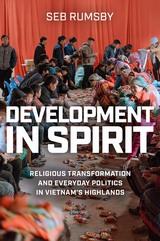
Following state-led market reforms in the 1980s, Vietnam experienced stunning economic transformation. But for the Hmong communities of the country’s north and central highlands, the benefits proved elusive. Instead, the Hmong people have pursued their own alternative paths to development. Rumsby shows how mass conversion to Christianity led to a case of “unplanned development” that put the Hmong on a trajectory of simultaneous integration into the market economy and resistance to state authority.
Many of the strategies community members employ are tied to the Christianization of everyday life. Religious actors play complex and often contradictory roles in facilitating networks of exchange, challenging or enforcing gender norms, promoting communalism and enforcing discipline, and shaping local ideas about progress. They are influenced by national and transnational religious networks, especially US-produced radio broadcasts by Hmong American Christians and local converts.
This compelling account provides fresh theoretical and empirical insights into the interplay of religion, neoliberal development, and marketization across the world.




Wolff argues that a coherent psychobiological theory of early human development must begin with knowledge about the infant's behavioral repertory under free field conditions. Many current theories of human development begin instead with assumptions about the organization of behavior derived from studies of psychological function in the adult; moreover, they appeal to instincts, maturational programs, or genomes to explain the apparent lawfulness in the development of these behavioral categories. Such a priori explanations, Wolff contends, beg the whole question of development. As an alternative to theoretical metaphors that portray the infant as a closed system and suggests that development is controlled by prescient programs that anticipate the mature steady state, Wolff proposes a metaphor of the infant as an open, self-organizing system with partial, mutative mechanisms of development. Applying this metaphor, he addresses the essentially unsolved problem of how novel behavioral forms are induced during ontogenesis.
Wolff presents a study of twenty-two infants who were observed for thirty hours each week in their homes during the first months after birth. He builds a week-by-week description of changes in behavioral states of wakefulness and examines how reversible state changes influence developmental transformations in social-affective behavior and sensori-motor intelligence. The observations and informal experiments emphasize expressions of emotion and the infant's changing relations to persons and things. Pointing out that movements are our only clue to what infants "feel" or "think," Wolff gives special emphasis to the systematic variations in spontaneous and environmentally evoked patterns of motor coordination as a function of behavioral state transitions.
Of great importance to psychologists, psychiatrists, pediatricians, and students of development in general, The Development of Behavioral States and the Expression of Emotions in Early Infancy offers a major empirical, methodological, and theoretical rethinking of the subject to which Wolff has made outstanding contributions.


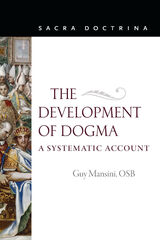

Presenting a new interpretation of humanist historiography, Donald J. Wilcox traces the development of the art of historical writing among Florentine humanists in the fifteenth century. He focuses on the three chancellor historians of that century who wrote histories of Florence—Leonardo Bruni, Poggio Bracciolini, and Bartolommeo della Scala—and proposes that these men, especially Bruni, had a new concept of historical reality and introduced a new style of writing to history. But, he declares, their great contributions to the development of historiography have not been recognized because scholars have adhered to their own historical ideals in judging the humanists rather than assessing them in the context of their own century.
Mr. Wilcox introduces his study with a brief description of the historians and historical writing in Renaissance Florence. He then outlines the development of the scholarly treatment of humanist historiography and establishes the need for a more balanced interpretation. He suggests that both Hans Baron’s conception of civic humanism and Paul Oscar Kristeller’s emphasis on the rhetorical character of humanism were important developments in the general intellectual history of the Renaissance and, more specifically, that they provided a new perspective on the entire question of humanist historiography.
The heart of the book is a close textual analysis of the works of each of the three historians. The author approaches their texts in terms of their own concerns and questions, examining three basic elements of their art. The first is the nature of the reality the historian is recounting. Mr. Wilcox asks, “What interests the writer? What is the substance of his narrative?… What does he choose from his sources…and what does he ignore? What does he interpolate into the account by drawing on his own understanding of the nature of history?” The second is the various attitudes—moral judgments, historical conceptions, analytical views—with which the historian approaches his narrative. And the third is the aspect of humanist historiography to which previous scholars have paid the least attention: the historian’s narrative technique. Mr. Wilcox identifies the difficulties involved in expressing historical ideas in narrative form and describes the means the historians developed for overcoming those difficulties. He emphasizes the positive value of rhetoric in their works and points out that they “sought by eloquence to teach men virtue.”
He devotes three chapters to Bruni, whom he considers the most original and important of the three historians. The next two chapters deal with Poggio, and the last with Scala. Throughout the book Mr. Wilcox exposes the internal connections among the three histories, thus illustrating the basic coherence of the humanist historical art.
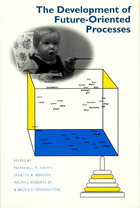
Following Marshall Haith's seminal studies on early infant anticipation, this collection begins with a survey of current knowledge about the early development of expectations. Addressing both the state of neural research in this field and the role of language and social context in the development of future orientation, the authors discuss the nature of planning in action, future orientation in humans and in nonhuman primates, and the development of intermediate and long-term expectations with regard to cognitive skills and scientific activity.
Combining developmental and cognitive perspectives, this volume will interest professionals in developmental psychology, child development, and neuropsychology.


Tracing the growth of ancient biography from the fifth century to the first century B.C., Arnaldo Momigliano asks fruitful questions about the origins and development of Greek biography. By clarifying the social and intellectual implications of the fact that the Greeks kept biography and autobiography distinct from historiography, he contributes to an understanding of a basic dichotomy in the Western tradition of historical writing. The Development of Greek Biography is fully annotated, and includes a bibliography designed to serve as an introduction to the study of biography in general.
This classic study is now reissued with the addition of Momigliano’s essay “Second Thoughts on Greek Biography” (1971).




Charles Curran in his newest book The Development of Moral Theology: Five Strands, brings a unique historical and critical analysis to the five strands that differentiate Catholic moral theology from other approaches to Christian ethics—sin and the manuals of moral theology, the teaching of Thomas Aquinas and later Thomists, natural law, the role of authoritative church teaching in moral areas, and Vatican II. Significant changes have occurred over the course of these historical developments. In addition, pluralism and diversity exist even today, as illustrated, for example, in the theory of natural law proposed by Cardinal Ratzinger.
In light of these realities, Curran proposes his understanding of how the strands should influence moral theology today. A concluding chapter highlights the need for a truly theological approach and calls for a significant change in the way that the papal teaching office functions today and its understanding of natural law.
In a work useful to anyone who studies Catholic moral theology, The Development of Moral Theology underscores, in the light of the historical development of these strands, the importance of a truly theological and critical approach to moral theology that has significant ramifications for the life of the Catholic church.

While the literature on “new institutionalism” explains the stability of institutional arrangements within countries and the divergence of paths of institutional development between countries, Federico Ferrara takes a “historical institutionalist” approach to theorize dynamic processes of institutional reproduction, institutional decay, and institutional change in explaining the development of political institutions. Ferrara synthesizes “power-based” or “power-distributional” explanations and “ideas-based” “legitimation explanations.” He specifies the psychological “microfoundations” of processes of institutional development, drawing heavily from the findings of experimental psychology to ensure that the explanation is grounded in clear and realistic assumptions regarding human motivation, cognition, and behavior. Aside from being of interest to scholars and graduate students in political science and other social-scientific disciplines whose research concentrates on the genesis of political institutions, their evolution over time, and their impact on the stability of political order and the quality of governance, the book will be required reading in graduate courses and seminars in comparative politics where the study of institutions and their development ranks among the subfield’s most important subjects.



Ten scholars whose specialties range from ethnohistory to remote sensing and lithic analysis to bioarchaeology chronicle changes in the way prehistory in the Southeast has been studied since the 19th century. Each brings to the task the particular perspective of his or her own subdiscipline in this multifaceted overview of the history of archaeology in a region that has had an important but variable role in the overall development of North American archaeology.
Some of the specialties discussed in this book were traditionally relegated to appendixes or ignored completely in site reports more than 20 years old. Today, most are integral parts of such reports, but this integration has been hard won. Other specialties have been and will continue to be of central concern to archaeologists. Each chapter details the way changes in method can be related to changes in theory by reviewing major landmarks in the literature. As a consequence, the reader can compare the development of each subdiscipline.
As the first book of this kind to deal specifically with the region, it be will valuable to archaeologists everywhere. The general reader will find the book of interest because the development of southeastern archaeology reflects trends in the development of social science as a whole.
Contributors include:
Jay K. Johnson, David S. Brose, Jon L. Gibson, Maria O. Smith, Patricia K. Galloway, Elizabeth J. Reitz, Kristen J. Gremillion, Ronald L. Bishop, Veletta Canouts, and W. Fredrick Limp

Early in the eighth century, the current of the Muslim movement that inundated northern Spain crept over the Pyrenees to spread across a portion of the French Midi. From the north the tide of Carolingian conquest forced the Muslims back and took in these same southern French and northern Spanish provinces. During the same era the Vikings raided intermittently and with varying degrees of intensity along the seacoasts and up the inland waterways, sometimes controlling considerable areas for extended periods.
These raids and conquests inevitably affected the way of life of the people of southern France and Catalonia. Contemporary travelers and later scholars have noted that the feudal traditions and obligations that were so strong in the north seemed very weak or nonexistent in the south. They found that the land seemed to be held largely as allods, not as feudal fiefs; they saw that women held positions of surprising power, that throughout the area there was great emphasis on money, and that the traditions of Roman and Visigothic law still survived.
Although scholars have noted these differences, no one has made a comprehensive study of southern French and Catalan society as a whole. It is to fill this void that Archibald Lewis provides this volume. In a detailed and scholarly study, based largely upon original records and chronicles, he examines the familial, social, economic, governmental, military, and religious life of the area from 718 to 1050 A.D.
Lewis gives as comprehensive a picture as the records will permit of the society that existed in the early eighth century, describes and discusses the major changes which took place during the next three centuries, and analyzes their causes and effects. This study, which includes careful and detailed notes and an extensive bibliography, provides a reliable and long-needed reference tool.
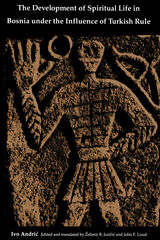
Over his long and distinguished career as a diplomat and man of letters Andric never again so directly or discursively addressed, as a social historian, the impact of Turkish hegemony on the Bosnian people (1463–1878), a theme he returns to again and again in his novels. Although Andric’s fiction was embedded in history, scholars know very little of his actual readings in history and have no other comparable treatment of it from his own pen. This dissertation abounds with topics that Andric incorporated into his early stories and later novels, including a focus on the moral stresses and compromises within Bosnia’s four religious confessions: Catholic, Orthodox, Jew, and Muslim.
Z. B. Juricic provides an extensive introduction describing the circumstances under which this work was written and situating it in Andric’s oeuvre. John F. Loud’s original bibliography drawn from this dissertation stands as the only comprehensive inventory of historical sources known to have been closely familiar to the author at this early stage in his development.

The development of the Dutch welfare state in the Netherlands started later than in other Western European countries, but once it started, it grew at a spectacular rate. The development was so rapid that it catapulted the Dutch from being welfare laggards to being welfare leaders. Cox charts the course of this growth, from the nineteenth century to the present, placing the Dutch case within the larger theoretical discussion of welfare states.
In so doing, Cox challenges the widely held assumption that welfare programs always represent the policies of the social democratic left. He demonstrates that it was not the left but the more centrist religious parties that built the Dutch welfare state in the 1960s. Even more curious is the fact that these same political forces had resisted the expansion of welfare programs throughout the first half of the twentieth century.
In many ways, the Netherlands is a crucial test case for assumptions about the welfare state. Its system is one of the largest in the world, rivaling Sweden's as one that devotes the greatest share of public spending to social welfare. How does it compare to other countries? Do present theories of welfare state development fit the Dutch case? What can we learn from the experience of a small state?
Cox makes a signal contribution in clarifying the historical record concerning a little-studied country and in advancing theoretical debate.
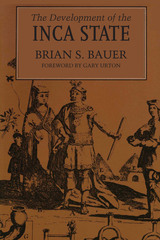
The Inca empire was the largest state in the Americas at the time of the Spanish invasion in 1532. From its political center in the Cuzco Valley, it controlled much of the area included in the modern nations of Ecuador, Peru, Chile, and Bolivia. But how the Inca state became a major pan-Andean power is less certain. In this innovative work, Brian S. Bauer challenges traditional views of Inca state development and offers a new interpretation supported by archaeological, historical, and ethnographic evidence.
Spanish chroniclers of the sixteenth and seventeenth centuries attributed the rapid rise of Inca power to a decisive military victory over the Chanca, their traditional rivals, by Pachacuti Inca Yupanqui. By contrast, Bauer questions the usefulness of literal interpretations of the Spanish chronicles and provides instead a regional perspective on the question of state development. He suggests that incipient state growth in the Cuzco region was marked by the gradual consolidation and centralization of political authority in Cuzco, rather than resulting from a single military victory. Synthesizing regional surveys with excavation, historic, and ethnographic data, and investigating broad categories of social and economic organization, he shifts the focus away from legendary accounts and analyzes more general processes of political, economic, and social change.
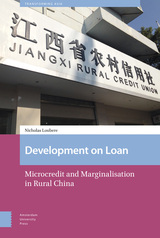
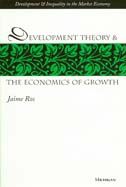
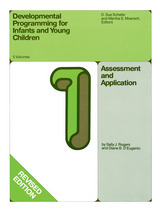
Developmental Programming for Infants and Young Children: Volume 1 provides detailed instructions for the use of Volume 2: Early Intervention Developmental Profile, including administration and evaluation techniques, scoring and interpretation of results, validity and reliability of findings, and complete item descriptions. To be used with children functioning in the 0-to-36-month developmental age range. Volume 1 includes the scoring sheet (Volume 2).
Developmental Programming for Infants and Young ChildrenIn Five Volumes
Developmental Programming for Infants and Young Children has proven to be an invaluable tool for teachers, therapists, and other professionals who assess and facilitate the development of children functioning primarily in the 0-to-60 month range. The authors address six areas of development: perceptual/fine motor, cognition, language, social/emotional, self-care, and gross motor. Volumes 1, 2, and 3 are designed for use with children functioning in the 0-to-36-month developmental age range, while Volumes 4 and 5 extend assessment and programming guidelines to 5-year (preschool) levels.
Carefully designed and tested by the University of Michigan's Institute for the Study of Mental Retardation and Related Disabilities, all volumes bridge the gap between assessment and program implementation.

Just as trade, finance, information, and technologies are moving rapidly across borders, so too have labor markets and transnational migrant communities. Migrants are sending large quantities of money back to their countries of origin in the form of philanthropy, remittances, and commercial investments. They are also sharing knowledge and skills learned or developed abroad. Is greater global equity an inevitable consequence of such diaspora philanthropy, or can this giving actually aggravate inequity? Diasporas and Development examines the positive—and sometimes negative—impacts of diaspora engagement in Africa, Asia, Central America, and the Caribbean.
How can the equity impact of this global giving be maximized? Might creative intermediary mechanisms or public policies help channel diaspora philanthropy in positive directions? They also explore motivations for the dark sides of diaspora engagement such as support for extremist organizations, organized crime, ethnic violence, and even civil war. Diasporas and Development aims to deepen the understanding of the promise and pitfalls of diaspora philanthropy and how it might help bridge the distances between societies in an unequal world.



With style and imagination, this iconoclastic work covers the major issues in development economics. In eight carefully reasoned essays, P. T. Bauer challenges most of the accepted notions and supports his views with evidence drawn from a wide range of primary sources and direct experience.
The essays were selected on the basis of their interest to students and general readers from Bauer's book, Dissent on Development: Studies and Debates in Development Economics. Reviewing the previous work, the Wall Street Journal wrote: "It could have a profound impact on our thinking about the entire development question... Quite simply, it is no longer possible to discuss development economics intelligently without coming to grips with the many arguments P. T. Bauer marshalled in this extraordinary work."


Doing Development in Arkansas is a history of that program as its creators tried to find their footing in new terrain, establish trust, work with borrowers despite legal pitfalls in doing so, and attempted to create new loan and technical assistance products. It is the story of the towns themselves in which Southern tried to have a substantial impact, including Arkadelphia, Hope, Malvern, Hot Springs, and Pine Bluff. Southern was an experiment and many of its achievements were the results in some cases of trying new ideas and in others of transporting programs successful in one setting to new locations. The most dramatic example of such a move is the development of the Good Faith Fund in Pine Bluff, based on a model of the Grameen Bank in Bangladesh.

Dream Zones explores the dreamed of and desired futures that constitute, sustain and disrupt capitalism in contemporary India.
Drawing on five years of research in and around India's Special Economic Zones (SEZs), the book follows the stories of regional politicians, corporate executives, rural farmers, industrial workers and social activists to show how the pursuit of growth, profit and development shapes the politics of industrialisation and liberalisation.
This book offers a timely reminder that the global economy is shaped by sentiment as much as reason and that un-realised expectations are the grounds on which new hopes for the future are sown.

Dreaming Revolution usefully employs current critical theory to address how the European novel of class revolt was transformed into the American novel of imperial expansion. Bradfield shows that early American romantic fiction—including works by William Godwin, Charles Brockden Brown, James Fenimore Cooper, and Edgar Allan Poe—can and should be considered as part of a genre too often limited to the nineteenth-century European novel. In a spirited discussion of the works from these four authors, Bradfield argues that Americans take the class dynamics of the European psychological novel and apply them to the American landscape, reimagining psychological spaces as geographical ones.

During the closing years of the sixteenth century, the Dutch East India Company fast became a political and economic force in Asia, en route to becoming the leading private company in the world by 1660. This definitive volume explores perhaps the most important tool in the company’s trade: its ships. Robert Parthesius here reconstructs the complete shipping activities of the Company through a unique database that charts the movements of even previously ignored smaller vessels. Demonstrating that the wide range of types and sizes of vessels were indeed what gave the Company the ability to sail—and to continue its profitable trade—year after year, Dutch Ships in Tropical Waters combines the best of maritime history and archaeological research in order to change our understanding of the logistical dynamics behind one of the most important and successful businesses of this period.
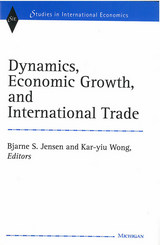
The work collected here serves to bridge the "old" growth theory and "new" growth theory; merge growth and trade theory; suggest new analysis and techniques of economic growth; and provide analysis of new issues related to growth and trade. The first chapter surveys endogenous growth and international trade and critically reviews the endogenous growth theory with a unified framework, covering the work on both closed and open economies. Three chapters examine the dynamics of some basic trade models; two chapters focus on growth and trade with endogenous accumulation of human and public capital; two chapters on economic growth, technological progress, and international trade; and two chapters on growth and international factor movements.
Contributors include Eric W. Bond, Theo S. Eicher, Rolf Färe, Oded Galor, Shawna Grosskopf, Bjarne S. Jensen, Pantelis Kalaitzidakis, Shoukang Lin, Ngo Van Long, Kazuo Nishimura, Koji Shimomura, Kathleen Trask, Stephen J. Turnovsky, Pham Hoang Van, Henry Wan, Jr., Chunyan Wang, and Kar-yiu Wong.
Bjarne S. Jensen is Associate Professor of Economics, Copenhagen Business School. Kar-yiu Wong is Professor of Economics, University of Washington, Seattle.

Dyslexia and Development presents the latest findings of neurobiological research, which suggest a link between seemingly minor brain abnormalities and epilepsy, learning disorders, and autism. The authors focus on the plasticity of the developing nervous system and the possible role of subtle early brain injury in the emergence of these disorders, particularly dyslexia.
The distinguished contributors to this volume examine epidemiological and clinical issues that may make the developing brain more vulnerable to environmental and genetic influences, which can in turn lead to abnormal brain plasticity and behavior. Although major forms of brain malformation have been clearly associated with functional deficits, mild forms have historically been ignored or trivialized; this book supports the hypothesis that several types of such malformation reflect brain injury during critical stages of development, and also the premise that more and more disturbances of thought and behavior stem from abnormalities of brain organization.
Neurologists and neurobiologists, psychologists, psycholinguists, psychiatrists, and special educators will find here a guide to more enlightened understanding and more effective treatment of dyslexia. In fact, the book emphasizes the positive aspect of the neurobiological deviation that dyslexic brains seem to show, along with the observation that people with such brains are often quite creative and extraordinary, rather than handicapped. In turn, the revised consideration of dyslexia should lead to more serious attention to other disturbances of childhood behavior as problems in developmental neurology, as well as to a deeper analysis of possible neurological bases for individual differences in normal behavior and personality.
READERS
Browse our collection.
PUBLISHERS
See BiblioVault's publisher services.
STUDENT SERVICES
Files for college accessibility offices.
UChicago Accessibility Resources
home | accessibility | search | about | contact us
BiblioVault ® 2001 - 2024
The University of Chicago Press









